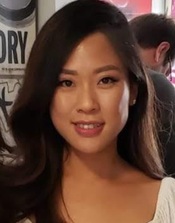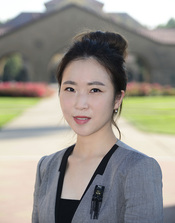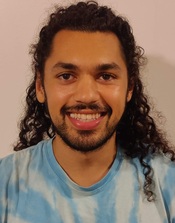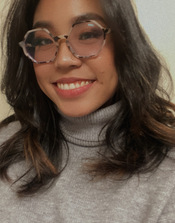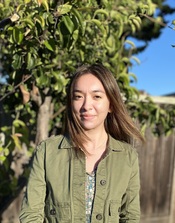Group Members
Principal Investigator

Karl Deisseroth
deissero at stanford.edu
Karl received his bachelor's degree from Harvard in 1992, his PhD from Stanford in 1998, and his MD from Stanford in 2000. He completed postdoctoral training, medical internship, and adult psychiatry residency at Stanford, and he was board-certified by the American Board of Psychiatry and Neurology in 2006. He tries to find spare time for flyfishing. He is also a writer; including in the literary nonfiction genre; his first book Projections was published by Penguin Random House in 2021 (karldeisseroth.org)
Post-docs
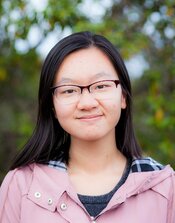
Yu Wang
yuwang24 at stanford.edu
Yu Wang is a postdoctoral fellow at the Deisseroth lab. She received her undergraduate degree in pharmaceutical sciences from Peking University, before obtaining her Ph.D. from The Scripps Research Institute. During her graduate studies in the labs of Ardem Patapoutian and Li Ye, she focused on neural integration of energy homeostasis. Currently, in the d-lab, Yu is exploring the circuit mechanisms that underlie various social behaviors.

Mengyu received her bachelor's degree in Biology from Nankai University in 2018, and her Ph.D. in Neurobiology from California Institute of Technology in 2024. During her graduate work in David Anderson's lab, she probed neural control of innate social behaviors in females. Now at the Deisseroth lab, she aims to explore reward regulation in conditions like depression. Her interest lies in studying sexual dimorphism, focusing on females, and using animal models to understand psychiatric disorders in humans.
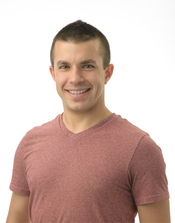
Dan O'Shea
djoshea at stanford.edu
Dan received his B.S.E. in Electrical Engineering from Princeton University (2009) before completing a PhD in Neuroscience at Stanford University (2017). In his graduate and postdoctoral research with Krishna Shenoy, Dan used mechanical and optogenetic perturbations to explore the neural population dynamics that enable flexible and robust control of movement. In the Deisseroth lab, Dan is using a variety of techniques to interrogate how brain-wide neural circuits perform the distributed computations that establish skilled behavior.
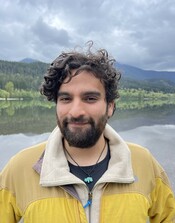
Stefano Cestellos Blanco
scestell at stanford.edu
Stefano earned a B.S. in Chemical Engineering from Stanford University in 2016, before moving across the Bay to complete a Ph.D. in Materials Science & Engineering from the University of California, Berkeley in 2022 with Peidong Yang. During his graduate studies, Stefano interrogated the synergistic interplay between functional materials and biology for biocatalysis and protein delivery. As a co-advised postdoctoral scientist between the Deisseroth and Bao labs, Stefano is exploring the correlation between chemical material properties and neurobiology in genetically targeted assemblies.

Lindsay Cameron
lpcameron at stanford.edu
Lindsay is a joint postdoc in the Deisseroth and Malenka labs. Lindsay completed her BSc. in Pharmacology at McGill University (Montreal), and her PhD in Neuroscience at UC Davis, in David Olson's lab. Lindsay's research focuses on studying the effects of psychedelics and related compounds, including potential for treating neuropsychiatric disorders like depression, PTSD and addiction in rodent models.
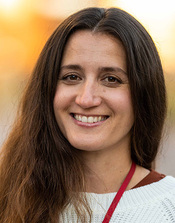
Wendy Wenderski
wwenders at stanford.edu
Wendy is a postdoctoral fellow in the Deisseroth lab studying the role of brain chromatin regulation in social behavior. She earned her PhD in Developmental Biology in 2022 with Gerald Crabtree at Stanford University identifying causal chromatin mechanisms in autism and Down syndrome. She earned her MA in Biology in 2014 from Hunter College while studying chromatin regulation in embryonic development and adult memory as a research assistant to C. David Allis at The Rockefeller University. She earned her B.S. in Biology at UC Santa Barbara in 2007 after transferring from Pasadena City College.
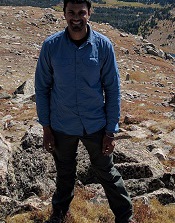
Anish Mitra
anishm at stanford.edu
Anish received his B.S. in Mathematics at Stanford prior to completing his MD/PhD at Washington University in Saint Louis. In the course of his graduate work with Marcus Raichle, Anish studied systems level spontaneous activity using human fMRI and widefield calcium imaging and electrophysiology in mice. As a postdoc, Anish is applying the Deisseroth Lab's imaging and brain stimulation techniques to investigate the mechanisms underlying organized patterns in brain-wide activity.

Tyson received his B.S. degree in Biochemistry (minor: Mathematics) from Rider University in 2016, M.S.c in Chemistry from Yale University in 2018, and Ph.D. in chemistry from UC Berkeley in 2021. During his graduate studies, Tyson focused on the development of novel chemical technologies based on optimized rhodamine fluorophores to enable long time-lapse super-resolution microscopy in live cells. As a joint postdoc between the Deisseroth, Bao and Bertozzi labs, Tyson is interested in combining techniques from chemistry, materials science and neuroscience to develop novel methodologies for interrogating neuronal activity in live animals.

Peter Wang
pywang7 at stanford.edu
Peter received his B.A. in biology and physics from Cornell University (2011), before completing a PhD in Neurobiology and Behavior at Columbia University (2019). During his graduate studies in the labs of Richard Axel and Larry Abbott, Peter studied circuits underlying associative learning using calcium imaging, optogenetics, and machine learning. In the Deisseroth lab, Peter is interested in using imaging and perturbation approaches to study social behaviors.

Anqi Zhang
aqzhang at stanford.edu
Anqi Zhang received her B.S. degree in Materials Chemistry from Fudan University in 2014, and Ph.D. degree in Chemistry from Harvard University in 2020. During her graduate work in Charles M. Lieber's lab, Anqi focused on developing flexible nano-/micro-bioelectronic tools and their applications in neural interfaces. As a joint postdoc in the Deisseroth and Bao labs, Anqi is interested in combining novel chemical, genetic and electronic tools to monitor and interrogate neural circuits.

Theodore Ho
tedho at stanford.edu
Ted completed a four-year joint bachelor's/master's degree program at Harvard University in Human Developmental and Regenerative Biology/Bioengineering, and then received his PhD in Biophysics from UCSF, where he discovered new mechanisms of stem cell aging in the lab of Dr. Emmanuelle Passegue. Now in the Deisseroth lab, Ted is using optical recording and perturbation of neuronal activity to study neural circuit dynamics that control behavior.
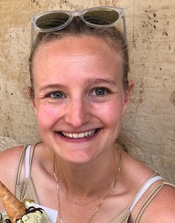
Claire Bedbrook
bedbrook at stanford.edu
Claire received a B.S. in Chemical Engineering from UC Berkeley (2011) before completing a Ph.D. in Bioengineering at Caltech (2018). During her graduate studies in the laboratories of Frances Arnold and Viviana Gradinaru, Claire engineered molecular tools for controlling and recording the brain using machine-learning based protein engineering. As a joint post doc in the Deisseroth and Brunet labs, Claire is studying how the brain controls longevity.

Yiming Chen
cym at stanford.edu
Yiming received his B.S in biology from UW-Madison in 2013 before completing a PhD in neuroscience at UCSF in 2018. During his graduate work in Zachary Knight's lab, Yiming studied how the hypothalamus drives feeding. As a postdoc in the Deisseroth lab, Yiming wants to apply novel molecular and optical tools to investigate the neurobiology of motivated behaviors.

Antonia Drinnenberg
drinnenb at stanford.edu
Antonia received a Bachelor's degree in Biology from ETH Zurich and a Master's degree in Computational and System Neuroscience from University of Zurich, Switzerland. In 2017 she completed her PhD in the group of Botond Roska at the FMI Basel, Switzerland. During her graduate work she studied the function of interneuron types in the retina combining genetic, viral, physiological, and computational approaches. After a short postdoc at the FMI, she joined the Deisseroth lab in 2018. In the D-lab she will continue pursuing her passion for dissecting neuronal circuits using targeted perturbations and plans to study brain-wide activity patterns during sensory-guided behaviour.

Carrie Shilyansky
cshilyan at stanford.edu
Carrie received her bachelor's degree in Biology from Caltech in 2001 and her PhD in neuroscience from UCLA in 2009 as part of a combined MD/PhD program completed in 2011. Her graduate work in Alcino Silva's lab explored molecular regulation of the balance of inhibition to excitation within corticostriatal networks, in particular related to working memory deficits associated with a neurogenetic disorder, NF1. In the Deisseroth lab, she is using novel optical tools to explore emergence and regulation of brain wide networks implicated in depression.

Sam Vesuna
svesuna at stanford.edu
Sam earned his Bachelor's degree in biomedical engineering from Yale University in 2012, his Ph.D. in bioengineering from Stanford University in 2020, and his M.D. from the University of California, Irvine in 2022. His graduate work in Karl Deisseroth's lab included studying the neural basis of dissociation (Vesuna et al. Nature 2020). He is a research-track psychiatry resident and specializes in brain-wide, large-scale, hypothesis-free screens of brain activity, physiology and molecular mechanisms underlying subjective experience in rodents and human.

Yoon Seok Kim
kys8892 at stanford.edu
Yoon received his Bachelor's degree in neurobiology in 2013 and his M.S. in biology in 2014 from Stanford University. During his Masters degree, He studied the biochemistry of postsynaptic and presynaptic membrane proteins in Thomas Sudhof's lab. He is currently in the Bioengineering Ph.D. program at Stanford, and is co-advised by Dr. Brian Kobilka. He is working to understand mechanisms of different opsins and develop new tools for neuroscience research.

Josh Jennings
joshjennings at stanford.edu
Josh received his bachelor's degree in Psychology and Neuroscience from the University of Colorado at Boulder in 2009, and his Ph.D. in Neurobiology from the University of North Carolina at Chapel Hill. During his graduate work in Garret Stuber's lab, he utilized in vivo cell type-specific electrophysiological and optical methods to monitor the activity dynamics of discrete motivated behavioral states. In the Deisseroth lab, he plans to use optical techniques to selectively monitor and perturb neural network activity patterns.

Isaac Kauvar
ikauvar at stanford.edu
Isaac received a B.S. in Engineering Physics with a specialty in photonics fro Stanford, an M.S. in Electrical Engineering with a focus on imaging and optimization, also from Stanford, and is currently a PhD student in the Electrical Engineering program at Stanford. He is coadvised by Prof. Gordon Wetzstein in EE.
Graduate Students

Chelsea Li
celi at stanford.edu
Chelsea received her B.A. in Human Biology from the University of Virginia where she developed experimental tools to interrogate stem cell fate and studied the neural circuits of homeostasis. She also trained at the University of California, San Francisco where she studied neural circuits involved in feeding. Chelsea is interested in studying the brain-wide dynamics involved in the effects of substances such as ketamine and psilocybin. She is currently an MD/PhD student in the Neurosciences Graduate Program at Stanford and is co-advised by Professor Lisa Giocomo.

Joseph Noh
jnoh2 at stanford.edu
Joseph received his Bachelor’s degree in Biology (Microbes and Immunity) in 2021 from Stanford University. During his undergraduate years, he worked with mouse hematopoietic stem cells in Dr. Irving Weissman’s lab to characterize their age-associated molecular changes and explore their potential to rejuvenate the immune system in aging mice. He is currently an MD/PhD student in the Biophysics program co-advised by Dr. Christopher Barnes. As a budding structural and computational biologist, he is eager to illuminate the structural mechanisms underpinning the function of opsins.

Aviv Korman
kormanav at stanford.edu
Aviv (Vivi) is a student in the Bioengineering PhD Program at Stanford, co-advised by Prof. Ron Dror in Computer Science. Vivi received his B.S. and M.S. in Biophysics from the Humboldt University of Berlin, where he was mentored by Prof. Peter Hegemann (Experimental Biophysics Lab) and Prof. Edda Klipp (Theoretical Biophysics Lab). His main interest is in developing computational tools and machine learning methods to better guide protein screening, engineering, and design, currently focusing on opsin tools for optogenetics. Additionally, he is interested in representation learning for high-dimensional neural and behavioral sequence data.

Shenandoah Sunshine Wrobel
wrobel at stanford.edu
Shenandoah received a B.A. in Neuroscience and Mathematics from Vassar College in 2018, and a B.E. in Biomedical Engineering from Dartmouth College in 2019. She is currently a PhD student in the Bioengineering department and a participant in the NeuroTech program at Stanford.

Lucas Encarnacion-Rivera
lencriv at stanford.edu
Lucas received his B.S. in Neuroscience and Behavioral Biology from Emory where he studied ion-channels and developed machine learning-based tools for histology. Lucas also trained at the Princeton Neuroscience Institute where he studied locomotor coordination and internal states in the fly, and at the University of Pennsylvania where he studied the role of sodium leak in neuronal hyperexcitability. Lucas is interested in dissecting and interrogating the neural circuits of perception to understand their algorithmic properties.
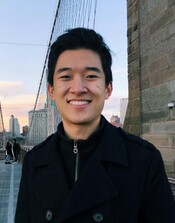
Tony Liu
txliu at stanford.edu
Tony received his B.S. in Physics from Yale University, and is currently a PhD student in Stanford's Bioengineering department. He has worked on neural computation in small circuits in flies with Dr. Jamie Jeanne, as well as machine learning for closed-loop neural interfaces applied to treatment-resistant depression with Dr. Katherine Scangos and colleagues. He is interested in improving treatments for severe psychiatric conditions, by characterizing brain-wide dynamical systems and precisely modulating their evolution.

Leili Mortazavi
leilimor at stanford.edu
Leili received her B.A. (honors) in Psychology from the University of British Columbia in 2019, where she was mentored by Dr. Catharine Winstanley for her senior honors thesis studying the role of dopaminergic signaling on risky choice in rats. She is currently a PhD student in the Psychology Graduate Program at Stanford and is co-advised by Dr. Brian Knutson. She is interested in conducting translational work and bridging the gap between human MRI and animal optogenetic techniques to better understand the mechanisms of risky decision making, specifically in the context of drug addiction.
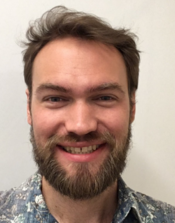
John Kochalka
kochalka at stanford.edu
John earned his B.S. in Computation and Neural Systems at Caltech before completing an M.S. in Biomedical Engineering at USC. Prior to starting his Ph.D., John worked in the Menon lab at Stanford where he developed machine learning approaches for human MRI data in order to understand the structural and functional bases of autism spectrum disorders and cognitive development. As a Neuroscience Ph.D. candidate in the Deisseroth and Druckmann labs, John is working to uncover the mechanisms governing large-scale cortical network dynamics and elucidate their role in behavior.

Tyler Benster
tbenst at stanford.edu
Tyler received an ScB in Applied Math-Economics from Brown University in 2014. He is currently a PhD student in the Neurosciences Graduate Program at Stanford, and is co-advised by Prof. Shaul Druckmann in Neurobiology. He is interested in developing theory and machine learning tools that guide experimental design for whole-brain imaging and stimulation of neural ensembles.
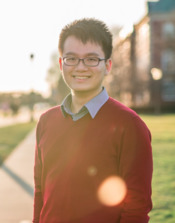
Kang Yong Loh
lohky at stanford.edu
Kang Yong Loh obtained his B.S. degree in Chemistry from the University of Illinois at Urbana-Champaign in 2017 under the supervision of Prof. Yi Lu, developing a near-IR tool to image metal ions in living systems. He then spent a gap year in the lab of Prof. Xiaogang Liu at the National University of Singapore, investigating the roles of lanthanides in photothermal and photoacoustics mechanisms. He is currently a PhD graduate student at Stanford University, ChEM-H Institute and Department of Chemistry. His research interests include developing novel chemical and protein tools to address questions in neuroscience. Kang Yong is co-advised by Prof. Carolyn R. Bertozzi.

YoungJu Jo
yjjo at stanford.edu
YoungJu received his BS in Physics and Mathematics from KAIST (Korea Advanced Institute of Science and Technology) in 2018 and is currently an Applied Physics PhD student at Stanford University. At KAIST, he worked with Profs. YongKeun Park and Won Do Heo on interdisciplinary technology development at the intersection of optics, genetics, and computing. In parallel, he also worked with the startup Tomocube commercializing his main undergraduate work, data-driven holographic diagnostics, to make a real-world impact on biomedicine. Now in the Deisseroth lab, he is interested in data-driven discovery and manipulation of neural circuits using all-optical electrophysiology, machine learning, and dynamical systems theory. He is co-advised by Dr. David Sussillo at Google Brain.
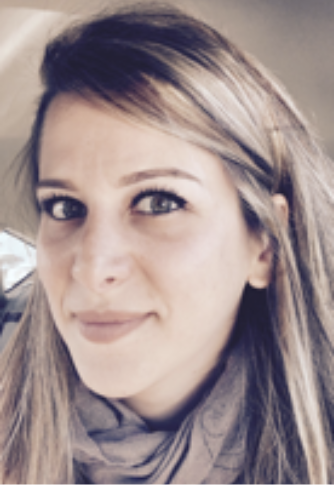
Marija Pavlovic
marijavp at stanford.edu
Marija received her B.S. in Chemical Engineering in 2011 and dual M.S. in Biochemical and Chemical Engineering in 2013 from the University of Belgrade. During her Masters research, she studied DNA damage response and radiation systems biology in Dr. Sylvain Costes's lab at UC Berkeley. Before coming to Stanford, she spent four years in industry doing research in the field of life sciences and translational medicine developing novel nanotechnology platforms. Currently, Marija is in the Bioengineering Ph.D. program at Stanford.

Ethan Richman
richman at stanford.edu
Ethan received an ScB in Applied Math-Biology from Brown University in 2013 and is currently a PhD student in the Neurosciences Graduate Program at Stanford. Previously, he developed a genetic method for anterograde transsynaptic labeling with Gilad Barnea at Brown University. He is interested in developing genetic techniques to better manipulate and interrogate neural circuit dynamics. Ethan is co-advised by Professor Liqun Luo.

Misha Raffiee
mraffiee at stanford.edu
Misha received a bachelor's degree in Bioengineering and Business Economics and Management from Caltech, and is currently in the Bioengineering PhD program at Stanford. She is interested in developing novel opsins to expand the optogenetics toolkit, and applying optical tools to investigate dynamics of neural circuits underlying behavior.
Staff
Research Professionals

Elle Yuen

Evan Perry
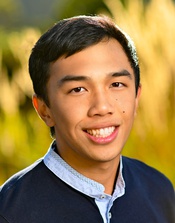
Arjay Cordero
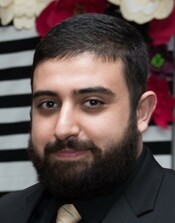
Barsin Eshaghi

Chandan Kadur

Kishandra Anne Patron
Yuqi Liu

Emily Nguyen
Undergrads

Thanh-Nga Shenoy

Jaeah Kim

Jenny Shi
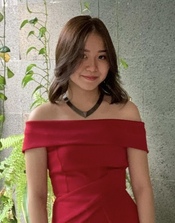
Celestine Wenardy
Alumni

Charu Ramakrishnan
Staff
-2023

Sally Pak
Staff
-2023

Kristin Overton
Staff
-2021

Ailey Crow
Staff
-2021

Chris Roat
Staff
2019-2022
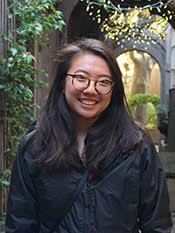
Rebecca Tien
Research Professional
-2022

Sawyer Randles
Research Professional
-2021

Sneha Patel
Research Professional
-2021

Amanda Urke
Research Professional
-2020
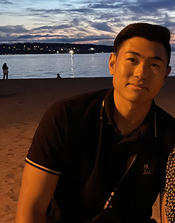
Brady Liu
Research Professional
-2023

Ellie Kim
Research Professional
-2023

Angie Garbino
Research Professional
-2023
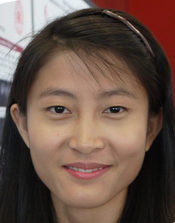
Linlin Fan
Post-doc
2019-2023
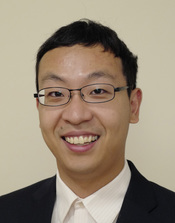
Longzhi Tan
Post-doc
2019-2022
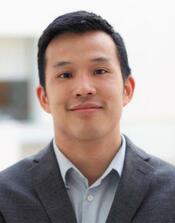
Ritchie Chen
Post-doc
2019-2023

Eamon Byrne
Post-doc
2019-2023

Brian Hsueh
Graduate Student
2014-2021

Rachana Mudipalli
Undergrad
2019-2022
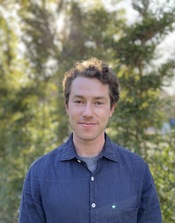
Ben Midler
Undergrad
2022-2022
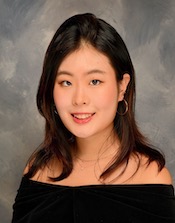
Francesca Kim
Undergrad
2019-2022
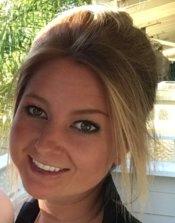
Felicity Gore
Post-doc
-2023

Jiayi Dou
Post-doc
-2023

Susanna Bradbury
Undergrad
2017-2022
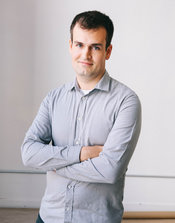
Tim Machado
Post-doc
2018-2022

Masatoshi Inoue
Post-doc
-2023

Daniel Tang
Undergrad
-2021
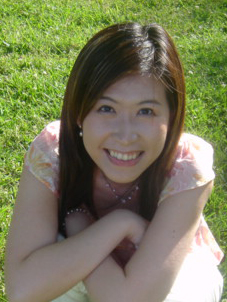
I-Ping (Sophia) Lee
Research Professional
2016-2018
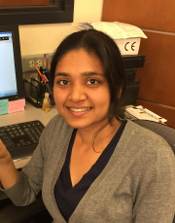
Nandini Pichamoorthy
Research Professional
-2019

Xiao Wang
Post-doc
2015-2019

Emily Sylwestrak
Post-doc
-2019

Huiliang (Evan) Wang
Post-doc
-2021

Ai-Chi Wang
Research Professional
-2018

Alice Shi On Hong
Research Professional
2014-2015
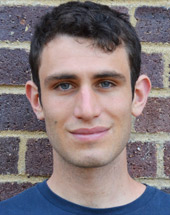
William Allen
Graduate Student
2013-2019

Jeanne T. Paz
Research Associate
2013-2014

Melissa Warden
Post-doc
-2014

Tom Davidson
Post-doc
-2015

Avishek Adhikari
Post-doc
-2017

Aaron Andalman
Post-doc
-2021

Paul Kalanithi
Post-doc
-2015
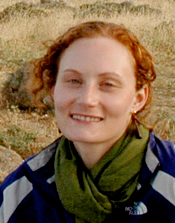
Talia Lerner
Post-doc
-2017

Soo Yeun Lee
Post-doc
-2017

Andre Berndt
Post-doc
-2017
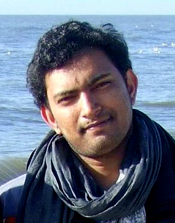
Raju Tomer
Post-doc
2013-2017

James Marshel
Post-doc
-2023

Priya Rajasethupathy
Post-doc
2013-2017
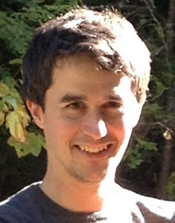
Conor Liston
Post-doctorate
-2014

Li Ye
Post-doc
-2019

Matthew Lovett-barron
Post-doc
-2020

Logan Grosenick
Graduate Student
-2015

Joanna Mattis
Graduate Student
-2014
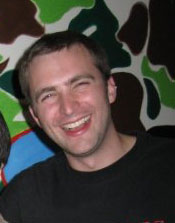
Lief Fenno
Post-doc
-2022

Kelly Zalocusky
Graduate Student
2010-2016

Werapong (joe) Goo
Graduate Student
-2014

Emily Ferenczi
Graduate Student
-2015

Aslihan Selimbeyoglu
Graduate Student
-2016

Christina Kim
Post-doc
-2021

Vanessa Burns
Graduate Student
2011-2016

Samuel Yang
Graduate student
2011-2016
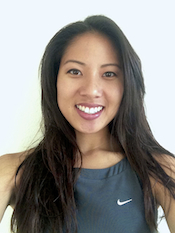
Ariane Tom
Graduate student
2013-2017

Haley Swanson
Research Professional
-2014

Debha Amatya
Undergrad
2013-2014

Anna Jaffe
Undergrad
-2017
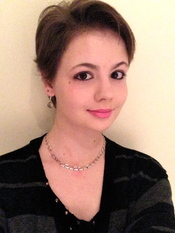
Kathryn Evans
Research Professional
2014-2018
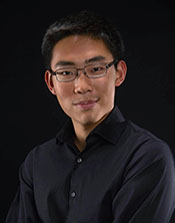
Michael Zhu Chen
Undergrad
-2021

Raghu Yabaluri
M.s.,
-2005

Handhini Nandiwada Santhanam
M.s.
-2007
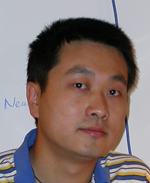
Yuqing Gong
M.s.
-2006

Ed Boyden
Postdoc
2006-2007

Cathy Han
M.s.
-2007
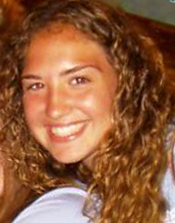
Vicki Parente
B.s.
-2007

Myriam Cordey
Postdoc
2005-2006
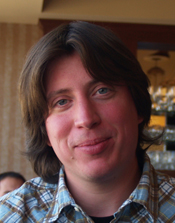
Albrecht Stroh
Postdoc
2006-2007

Alex Aravanis
Postdoc
2006-2007

Mani Roy
Scientist
2005-2007

Ellora Karmarker
Undergrad
2005-2007

Leslie Meltzer
Grad Student
2004-2008

Feng Zhang
Graduate student
2004-2009

Liping Wang
Post-doc
2005-2007
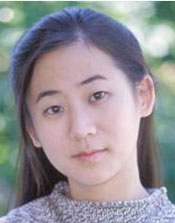
Jin Hung Lee
Post-doc
2007-2009
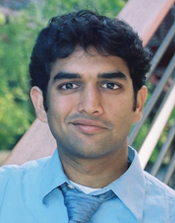
Raag Airan
Graduate student
2005-2009
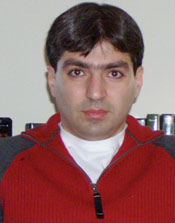
Ramin Pashaie
Post-doc
2007-2009

Bret Schneider
Staff Scientist
2006-2010

Vikaas Sohal
Post-doc
2006-2010

Ragu Vijaykumar
Graduate student
2006-2010

Hannah Bernstein
Undergrad
2007-2010

Hosniya Zarabi
Undergrad
2008-2010

Matt Brodsky
Undergrad
2009-2010

Hsing-chen Tsai
Graduate student
2006-2010

Polina Anikeeva
Post-doc
2008-2010
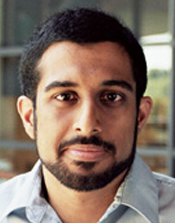
Murtaza Mogri
Grad Student
2006-2011
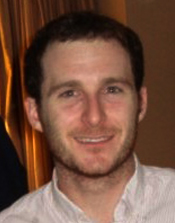
Remy Durand
Grad Student
2007-2011

Ilka Diester
Post-doc
2008-2011

Ofer Yizhar
Post-doc
2008-2011

Kay Tye
Post-doc
2008-2011
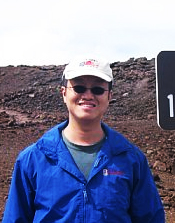
David Lin
Post-doc
2010-2012
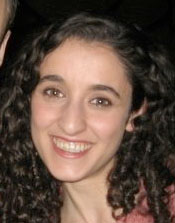
Ilana Witten
Post-doc
2008-2012

Anselm Levskaya
Post-doc
2009-2011
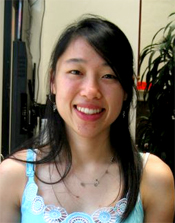
Nancy Wang
Research Professional
2011-2012

Viviana Gradinaru
Graduate Student
2006-2010

Kim Thompson
Post-doc
2007-2012
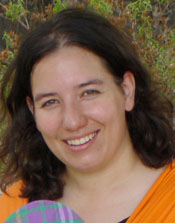
Inbal Goshen
Post-doc
2008-2012
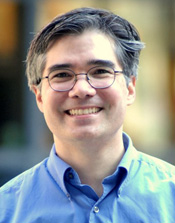
Chris Lee-messer
Post-doc
2009-2012

Divya Chander
Post-doc
2009-2012
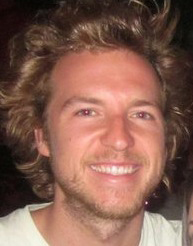
Chris Towne
Post-doc
2010-2012
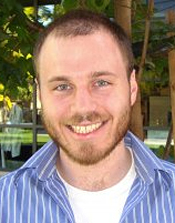
Ryan Squire
Grad Student
2008-2012

Joel Finkelstein
Research Professional
2009-2011

Sandhiya Kalyanasundaram
Research Professional
2010-2012

Zhiqiang Chen
Research Professional
2008-2012
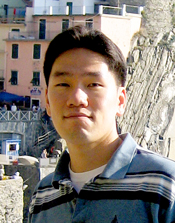
Kwanghun Chung
Post-doc
-2013

Rohit Prakash
Graduate student
-2012

Lisa Gunaydin
Grad Student
-2013

Minsuk Hyun
Undergrad
-2013
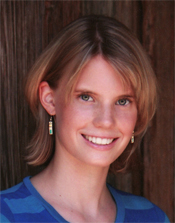
Jenelle Wallace
Undergrad
-2013
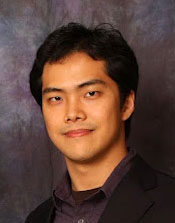
Sung-yon Kim
Graduate student
-2013

Jule Mirzabekov
Research Professional
-2013

Chelsey Perry
Research Professional
-2014


